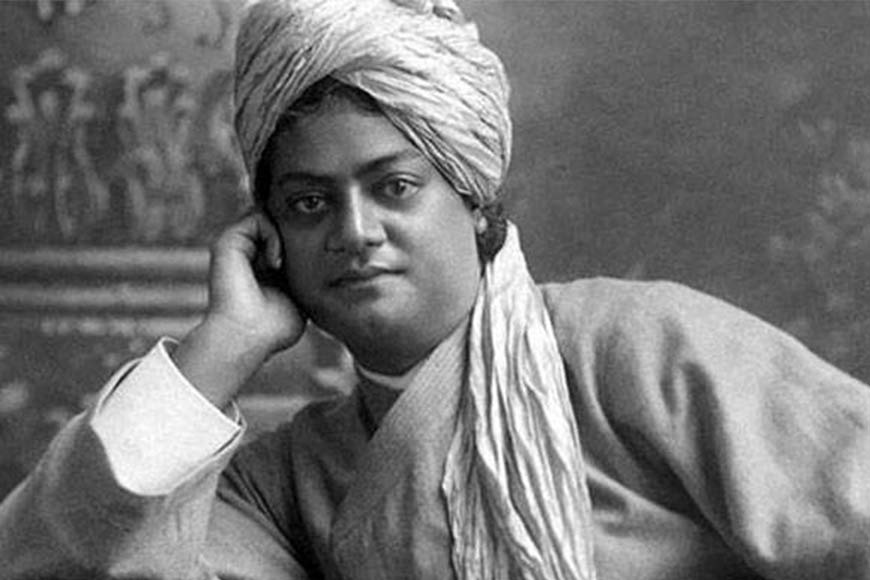Swami Vivekananda on Practical Vedanta: ‘Different’ Understanding

This is the 160th birth anniversary of Swami Vivekananda. Born in 1863 and died in 1902, he just lived for only 39 years and worked for around 10 years, but his visions are appreciated even today. As a disciple of Sri Ramakrishna Paramhansa, he was interested in knowing about the realities of the world. He believed in Vedanta, but his understanding of Vedanta was different from the classical Vedanta. The culture of the knowledge of Vedanta often demands one to repeal society and humanity and asks to get rid of all the tender sentiments such as love, devotion, compassion, and so on. But Sri Ramakrishna’s words enlightened Swami Vivekananda, he was introduced to a new Vedanta or neo-Vedanta. The Vedanta can be practised even after being a part of society, which can be practised even at home and which applies to our daily lives.
Till 1930, Vedanta was more or less preached through lectures at various conferences. Swami Vivekananda was the first person who talked about Vedanta in the West, differently and specially. The special and unique contribution of Sri Ramakrishna and Swami Vivekananda is that they made Vedanta dynamic, and more useful in our day-to-day life. Their teachings and preachings of the Brahman idea theoretically came close to scientific and philosophical thoughts ---- making it approachable to the present generation. Vedanta means the end of the Vedas. The Upanishads embodying philosophical ideas are the last literary products of the Vedic period, which were studied after the Samhitas and the Brahmanas. The Vedantic literature is vast. It is also known as the Perennial Philosophy. It is the science of religion. It fathoms the spirit’s pursuit of happiness, their utilitarian and rationalistic or scientific needs.
Vedanta is relatable to people of all religions. It shows that man’s original nature is not restricted to the body or mind. Man’s original nature is their Spirit. This is the idea of Vedanta, which focuses on man’s divinity. Spirit is indestructible. Vedanta compares religion with a woman. A woman has varied identities, yet she retains her singular identity as a woman. Religion is somewhat similar, many faiths are there, faith in different gods, but the faith remains constant.
Vedanta makes a person enlightened about their identity, that they are not just body or not just the mind, but the spirit or Aatma, which is limitless. In the pursuit of knowing oneself, people often forget what their aim is. Most humans aim to be happy, but their attachment to their bodies hinders them to move toward happiness. Vedanta teaches oneself that by meditation one can lessen their body consciousness. Meditation helps the human to gain sufficient insight into oneself so that it is possible for the person to become enlightened and as a result, the body consciousness decreases gradually. It is a process, it cannot be obtained in a span of a short time, as it requires a vision or yearning towards improving oneself by knowing the self or Aatma.
We often welcome the pleasure but become aversive when a little pain is faced. That is indeed painful, but if one disidentifies themselves, separates their identity from their body and mind, and finally accepts that it is the spirit, then the pain submerges. The repetition of the saying “I am the Spirit; I am the Spirit. I am the Aatma; I am the Aatma,” every day makes one closer to their becoming the Aatma. The repetition seems to hypnotize someone into believing that they are the atman or the Spirit but Swami Vivekananda replies to this by saying. “No, it is de-hypnotization. Your real nature is the Spirit, but you have hypnotized yourself into thinking you are the puny creature, limited by the body and the mind. You are not.”
A few minutes devoted to oneself, to the Divine, for knowing the truth or to avoid the pain is a step forward towards one’s realisation of their Spirit. The Vedantic teachers used to say that knowing the Self is the purpose of our life. The method of knowing the Self is to remove ignorance. That’s how Swami Vivekananda decoded Vedanta in a new light and inspired youths down generations. He continues to do so even today.









